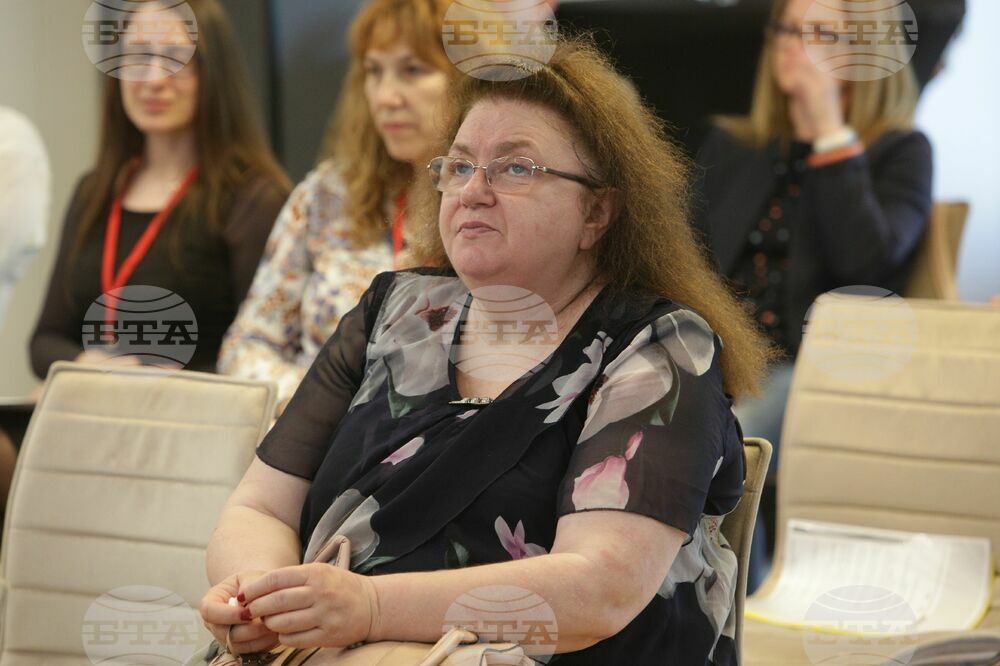site.btaAntibiotic Use Up by 27% in Last Five Years in Bulgaria


According to information from the October 31 edition of Euractiv, antibiotic use in Bulgaria has increased by 27% over the past five years, while in 2019 it was almost identical to the European Union (EU) average, BTA learned from Prof. Dr. Radostina Alexandrova from the Institute of Experimental Morphology, Pathology and Anthropology with Museum at the Bulgarian Academy of Sciences (BAS), who is a virologist and biologist. The interview was given on the occasion of Antimicrobial Resistance Week (November 18-24).
Antimicrobial resistance is recognized by the WHO as one of the top three public health threats. It is ranked third as a cause of death after cardiovascular disease (ischaemic heart disease and stroke), said Prof. Alexandrova.
A study published in The Lancet on September 28 presents the first comprehensive assessment of the global burden of antimicrobial resistance from 1990 to 2021 and projects outcomes to 2050. A total of 22 pathogens, 84 pathogen-drug combinations and 11 infectious syndromes in 204 countries and territories are covered.
"In 2021, there were an estimated 4.71 million deaths associated with bacterial AMR, including 1.14 million deaths attributable to it. Over the three decades, deaths from AMR in all the regions studied declined by more than 50% among children under five, but increased by more than 80% for people 70 years and older," the BAS virologist said.
Can antimicrobial resistance be limited? Immediate measures to achieve this goal include surveillance and monitoring, minimizing over-the-counter antibiotics and sensibly limiting use in food animals, ensuring access to quality and affordable medicines, vaccines and diagnostics, improved quality of health care in hospitals and medical centres, and strict enforcement of relevant legislation. Adequate organization of the production process of antibiotics and waste treatment is important, Prof. Alexandrova explained.
Developing new antimicrobials should be a priority, but this is not at all easy. Only eight of the 51 newly developed antibiotics can be defined as innovative drugs for the treatment of infections caused by bacteria characterized by AMR. The rest are modifications of already existing antimicrobials. Many institutions have significantly reduced their investment in this area of research, and 18 major companies have withdrawn from the task, the expert said.
According to her, alternatives to antibiotics are being sought intensively. These include various natural products, bacteriophages (viruses in bacteria), as well as the so-called antisense oligonucleotides.
In Bulgaria, the use of antibiotics has increased by 27% over the past five years, while in 2019 it was almost identical to the average for the European Union, according to Euractiv data. The reason for this was the coronavirus pandemic, but even after its acute phase subsided, the consumption of antibiotics in Bulgaria remains elevated. Of the other EU countries, only Greece (28.5%) and Romania (27.4%) have higher levels of antimicrobial consumption, said Prof. Alexandrova.
She said that a publication by Vankova and collaborators in the European Journal of Public Health in 2023 reveals that while antibiotic use has been declining in the EU since 2009, Bulgaria is reporting an increase in antibiotic use and in 2021 (according to Eurobarometer data) it is twice as high as in Germany. The authors point out that only 41% of Bulgarians know that antibiotics do not kill viruses, and 30% have taken an antibiotic to treat COVID-19 against 1% in Finland."
According to the Institute for Health Metrics and Evaluation at the University of Washington, in 2019 there were 1,600 deaths in Bulgaria due to AMR and 6,400 deaths related to AMR.
An analysis by the National Centre for Infectious and Parasitic Diseases shows that resistance to all classes of antibiotics is being found in Bulgaria, including the latest generation of drugs not registered in the country, such as cefiderocol, plasmomycin and eravacycline, said Prof. Alexandrova.
Limiting and controlling antimicrobial resistance requires coordination and cooperation within and between multiple sectors, such as medicine, veterinary medicine, pharmacy, agriculture, finance, trade, education - both nationally and internationally, it requires the support and political will of all parties, statesmen and society as a whole, the BAS virologist said.
/DS/
news.modal.header
news.modal.text